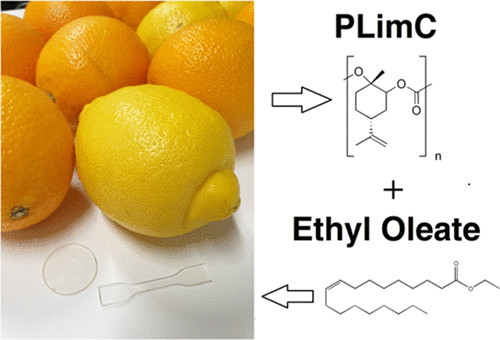News
Unlocking the Processability and Recyclability of Biobased Poly(limonene carbonate)
11.04.2020
Simon Neumann, Lisa-Cathrin Leitner, Holger Schmalz, Seema Agarwal, Andreas Greiner
ACS Sustainable Chem. Eng. 2020 https://doi.org/10.1021/acssuschemeng.0c00895

Poly(limonene carbonate) (PLimC) has a huge potential as a sustainable biobased polymer due to its promising property profile and the availability of the raw materials from nonedible resources, i.e., limonene from orange peel. PLimC and related terpene-based polycarbonates have not been processed from the melt state successfully due to their comparably low decomposition temperatures. Indeed, melt-processed PLimC samples are brittle and colorized. To change the paradigm, we have investigated compounds of PLimC with biobased ethyl oleate (EtOL). The glass transition temperature (Tg) and melt viscosity of these compounds can be readily controlled by the EtOL content. The melt-processed PLimC/EtOL compounds showed improved mechanical properties without significant loss in optical properties as compared to neat PLimC. Interestingly, the PLimC/EtOL compounds could be melt-processed a second time without significant loss of mechanical and optical properties, which could mark an important step toward recyclability.

